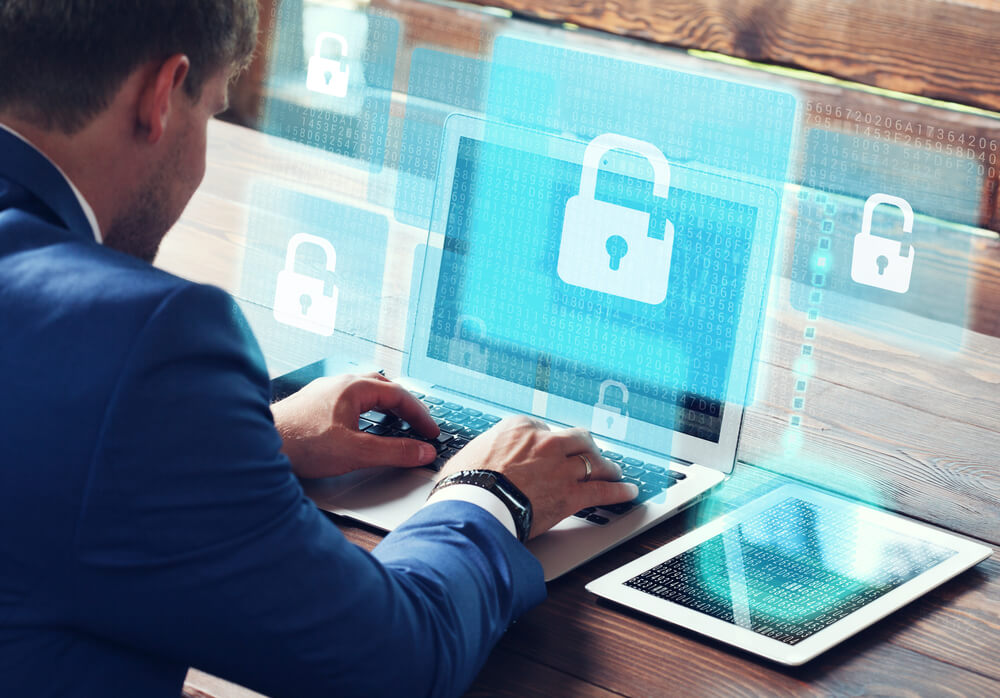Password Hygiene: Why it’s Important + How to Improve Yours

Across all of your personal and business accounts, you’re probably juggling dozens of passwords. We all use passwords, but probably not the way we should.
Because we’re juggling so many passwords across accounts, it’s easy to fall into poor password hygiene habits like reusing passwords, using a slight variation of a core password, and using words that are obviously connected to us (like our names, the name of our company, our pet’s name).
Not doing our due diligence to create strong passwords makes it easier for hackers to crack our login credentials and potentially steal our sensitive information.
Ready to learn more to better secure your passwords? We dig into some surprising password statistics below and offer tips to improve your password hygiene below.
11 Password Statistics to Highlight the Danger of Poor Password Management
- Even after experiencing a data breach such as a man-in-the-middle attack or phishing attack, only 53% of IT security professionals say their organizations changed how passwords or protected corporate accounts were managed. – Yubico and Ponemon Institute
- In 2021, 90% of respondents indicated that they had up to 50 online/app accounts. – LastPass
- 83% of survey respondents said they would have no way of knowing if their information was on the dark web. – LastPass
- 45% of survey respondents did not change their passwords in the past year even after a breach had occurred. – LastPass
- Bad bots, performing credential scraping and other malicious actions, account for 24% of all internet traffic. – Dark Reading
- 85% of data breaches involved a human element such as phishing, stolen credentials, and human error. – Verizon
- 36% of breaches in 2020 involved phishing. – Verizon
- As of 2020, it’s estimated that there are more than 15 billion stolen credentials available to cybercrime actors on the dark web. – Forbes
- Of passwords recovered from breaches in 2020, 60% of victims had reused at least one password across multiple platforms. – InfoSecurity
- After examining 5 million breached passwords from the Gmail hack of 2014, most passwords for both men and women were eight characters in length. – WPEngine
- The most common password of 2021 was “123456,” which would take hackers less than one second to crack. – NordPass
5 Tips to Improve Your Password Hygiene
Improving your passwords — and by extension, securing your online life — starts with being more aware of what’s considered a “bad” password. Below, we offer tips for creating stronger passwords and tips for storing your passwords safely.
Create passwords with a minimum of eight characters: Longer passwords take hackers longer to crack than shorter passwords.
Add more characters to your password: Use a mix of uppercase and lowercase letters, special characters, and numbers.
Use random passwords for every account: Yes, it can be hard to keep track of passwords, but it’s especially important to not reuse passwords for your most sensitive accounts like your email. If a hacker were to discover a password that you use across every account, it would take them no time to steal a variety of your personal information.
Opt for two-factor authentication or multi-factor-authentication: Both 2FA and MFA ask you to provide an additional form of authentication before logging into an account. This is a good idea for your more important accounts such as your bank account, healthcare information, and your email.
Invest in a password manager: If you’re tired of keeping track of all of your passwords, try a password manager. They store your passwords in an encrypted vault that you can access with just one master password.


Not doing our due diligence to create strong passwords makes it easier for hackers to crack our login credentials and potentially steal our sensitive information.

Want new articles before they get published? Subscribe to our Awesome Newsletter.

CAREER ADVICE

GOV TALK




